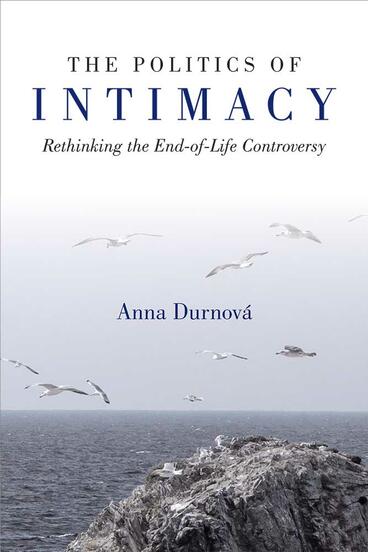The Politics of Intimacy
Rethinking the End-of-Life Controversy
The intimacy of dying reveals the conflict between individuals and the institutions that rule their beliefs
Description
Debates on the end-of-life controversy are complex because they seem to highjack national and cultural traditions. Where previous books have focused on ideological grounds, The Politics of Intimacy explores dying as the site where policies are negotiated and implemented. Intimacy comprises the emotional experience of the end of life and how we acknowledge it—or not—through institutions. This process shows that end-of-life controversy relies on the conflict between the individual and these institutions, a relationship that is the cornerstone of Western liberal democracies.
Through interviews with mourners, stakeholders, and medical professionals, examination of media debates in France and the Czech Republic, Durnová shows that liberal institutions, in their attempts to accommodate the emotional experience at the end of life, ultimately fail. She describes this deadlock as the “politics of intimacy,” revealing that political institutions deploy power through collective acknowledgment of individual emotions but fail to maintain this recognition because of this same experience.
Anna Durnová is Senior Researcher in Techno-Science and Societal Transformation at the Institute for Advanced Studies in Vienna and Faculty Fellow of Yale University's Center for Cultural Sociology.
Reviews
“Even as Anna Durnova creates two utterly compelling empirical case studies, she makes a major theoretical contribution to the sociology of emotion. She conceptualizes public expressions of suffering as a new and powerful discourse of intimacy that challenges institutions of power.”
—Jeffrey Alexander, Yale University
“This is a fascinating and empirically rich book that is a signature, poignant study on the ‘politics of intimacy’. . . the arguments are interesting, provocative, and insightfully persuasive.”
—Brent J. Steele, The University of Utah
“Anna Durnová’s book joins the scholarship on flows of ideas and practices across borders, on emotions and IR, on the body and IR, and on “the everyday” and IR. Her interviews, reviews of media coverage, and other research findings allow her to tell very interesting and analytically rich stories that tease out the relations between government, medical professionals, patients and their loved ones, and contending advocacy organizations.”
—Renee Marlin-Bennett, Johns Hopkins University
"[The Politics of Intimacy] is challenging, both intellectually and emotionally. It forces us to consider our own plans (or lack of them) for the only certainty in our uncertain existences. Yet in taking many of us out of our comfort zones, the book connects the individual reader to these broader collectives as we too become participants in an important discussion that spans boundaries and borders. If you feel uneasy by the end, there is still some comfort in knowing you are not alone."
- Bill Sisk, Rockefeller College of Public Affairs & Policy at SUNY Albany
-- Critical Policy Studies
"Durnová’s invitation to explore and to centre the concept of intimacy within our liberal institutions and policies – or to even acknowledge the role that emotional experience plays in these – is a necessary engagement during these times."
- Dr. Danielle House
—LSE Review of Books

